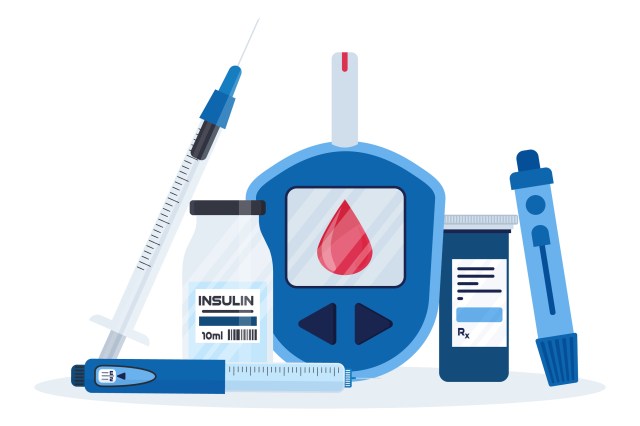Course Summary
Diabetic ketoacidosis is an acute complication of diabetes mellitus, which requires prompt, aggressive, treatment. Complications of diabetic ketoacidosis throughout the age spectrum and during pregnancy require a close evaluation of symptoms, testing, treatment, and treatment outcomes. Anyone with diabetes, regardless of age or gender, can develop ketoacidosis. Guidelines exist that guide diabetes health teams in the clinical care of the diabetic patient. Appropriate and timely treatment can reduce diabetic ketoacidosis complications, and patients can fully recover.
Course Format
Homestudy
Course Syllabus
- Introduction
- Diabetic Ketoacidosis: a Metabolic Disorder
- Epidemiology
- Glucose, Insulin, and Diabetes: A Brief Review
- Glucose and Energy
- Type 1 and Type 2 Diabetes Classification System: Out of Date?
- Pathophysiology of DKA
- Pathophysiology, Signs and Symptoms of DKA
- Precipitating Causes
- Clinical Signs and Symptoms of DKA
- Diagnosis of DKA
- Laboratory Tests
- Hyperkalemia
- Hyponatremia
- Other Electrolytes
- Amylase, Lipase, and Hepatic Transaminases
- Leukocytosis
- Serum Osmolality and Renal Function Studies
- Troponin Levels
- Euglycemic DKA
- Gestational Diabetes and DKA
- Risk Factors
- Insulin Resistance
- Ketosis
- Clinical Presentation
- Atypical Antipsychotics and DKA
- Complications of DKA
- Cerebral Edema
- Assessment and Treatment
- Fluid Replacement
- Electrolyte Imbalances
- Insulin Therapy
- Acid-Base Disturbances and Bicarbonate Therapy
- Treatment of Cerebral Edema
- Monitoring, Clinical Care, and Prevention
- Clinical Care and Education
- Access to Medical Care
- Lack of Education
- Emotional Acceptance and Non-compliance
- Case Studies: Diabetic Ketoacidosis
- Case 1: Euglycemic DKA with Dapagliflozin
- Discussion
- Case 2: Acute Mountain Sickness and DKA
- Discussion
- Case 3: Pediatric DKA and Cerebral Edema
- Discussion
- Summary
Authors
Noah H. Carpenter, MD
Dr. Noah Carpenter is a Thoracic and Peripheral Vascular Surgeon. He completed his Bachelor of Science in chemistry and medical school and training at the University of Manitoba. Dr. Carpenter completed surgical residency and fellowship at the University of Edmonton and Affiliated Hospitals in Edmonton, Alberta, and an additional Adult Cardiovascular and Thoracic Surgery fellowship at the University of Edinburgh, Scotland. He has specialized in microsurgical techniques, vascular endoscopy, laser and laparoscopic surgery in Brandon, Manitoba and Vancouver, British Columbia, Canada and in Colorado, Texas, and California. Dr. Carpenter has an Honorary Doctorate of Law from the University of Calgary, and was appointed a Citizen Ambassador to China, and has served as a member of the Indigenous Physicians Association of Canada, the Canadian College of Health Service Executives, the Science Institute of the Northwest Territories, Canada Science Council, and the International Society of Endovascular Surgeons, among others. He has been an inspiration to youth, motivating them to understand the importance of achieving higher education.
Dana Bartlett, RN, BSN, MSN, MA, CSPI
Dana Bartlett is a professional nurse and author. His clinical experience includes 16 years of ICU and ER experience and over 27 years as a poison control center information specialist. Dana has published numerous CE and journal articles, written NCLEX material, textbook chapters, and more than 100 online CE articles, and done editing and reviewing for publishers such as Elsevier, Lippincott, and Thieme. He has written widely on the subject of toxicology and was a contributing editor, toxicology section, for Critical Care Nurse journal. He is currently employed at the Connecticut Poison Control Center. He lives in Wappingers Falls, NY.


